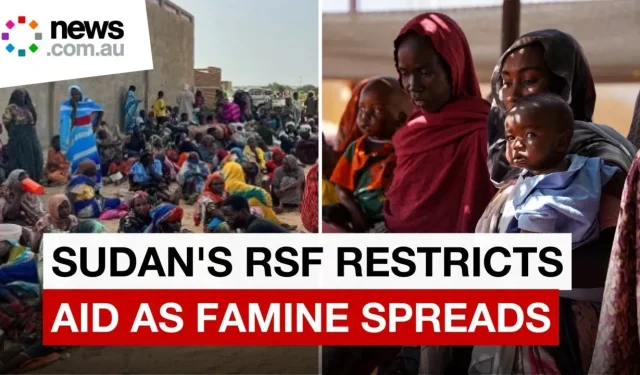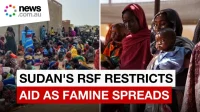Overview of Current Humanitarian Crisis in Sudan
The humanitarian situation in Sudan has reached alarming levels as a war between the Sudanese army and the Rapid Support Forces (RSF), a powerful paramilitary group, continues to escalate. Relief workers report that the RSF has imposed new restrictions on aid deliveries to regions already grappling with famine, intensifying what the United Nations has described as the world’s most devastating humanitarian crisis.
New Constraints on Aid Deliveries
Relief workers on the ground have indicated that the RSF’s actions have significantly hindered the delivery of much-needed assistance to vulnerable populations. As aid routes are restricted, countless individuals facing acute food shortages are left without access to resources crucial for survival. The UN has highlighted that millions in Sudan are struggling with extreme hunger due to ongoing violence and instability, exacerbating the already critical situation.
The Role of the Rapid Support Forces
The RSF has become a dominant force within Sudan amidst the ongoing conflict. Initially formed to combat rebellion in the Darfur region, the RSF has expanded its influence and capabilities. This paramilitary group’s actions, including restricting humanitarian aid, reflect an aggressive strategy that complicates the already precarious humanitarian landscape.
United Nations’ Response and Warnings
The United Nations has consistently warned that the deteriorating situation in Sudan could lead to disastrous outcomes for the civilian population. Reports indicate that food shortages could become widespread if aid deliveries do not resume promptly. The UN and other humanitarian organizations are calling for an immediate ceasefire and unrestricted access for humanitarian aid to address the urgent needs of those impacted by the famine, which threatens to engulf even more regions of the country.
Broader Implications for Sudan and International Community
This crisis not only poses a dire risk to the population of Sudan but also has broader implications for regional stability and international humanitarian efforts. The limitations imposed by the RSF risk setting a troubling precedent for future conflicts, where military factions could manipulate aid as a tactical advantage, further complicating international relief efforts.
As the situation unfolds, global stakeholders are urged to respond with immediate action, emphasizing the need for diplomatic engagement to alleviate the humanitarian impact and stabilize the region. The crisis in Sudan calls for renewed international attention and action, as the world’s efforts to combat famine and promote peace are put to the ultimate test.


